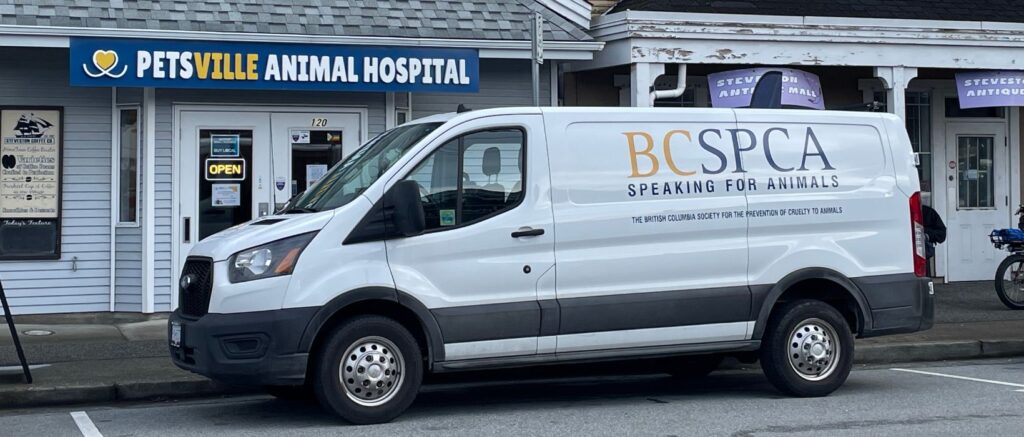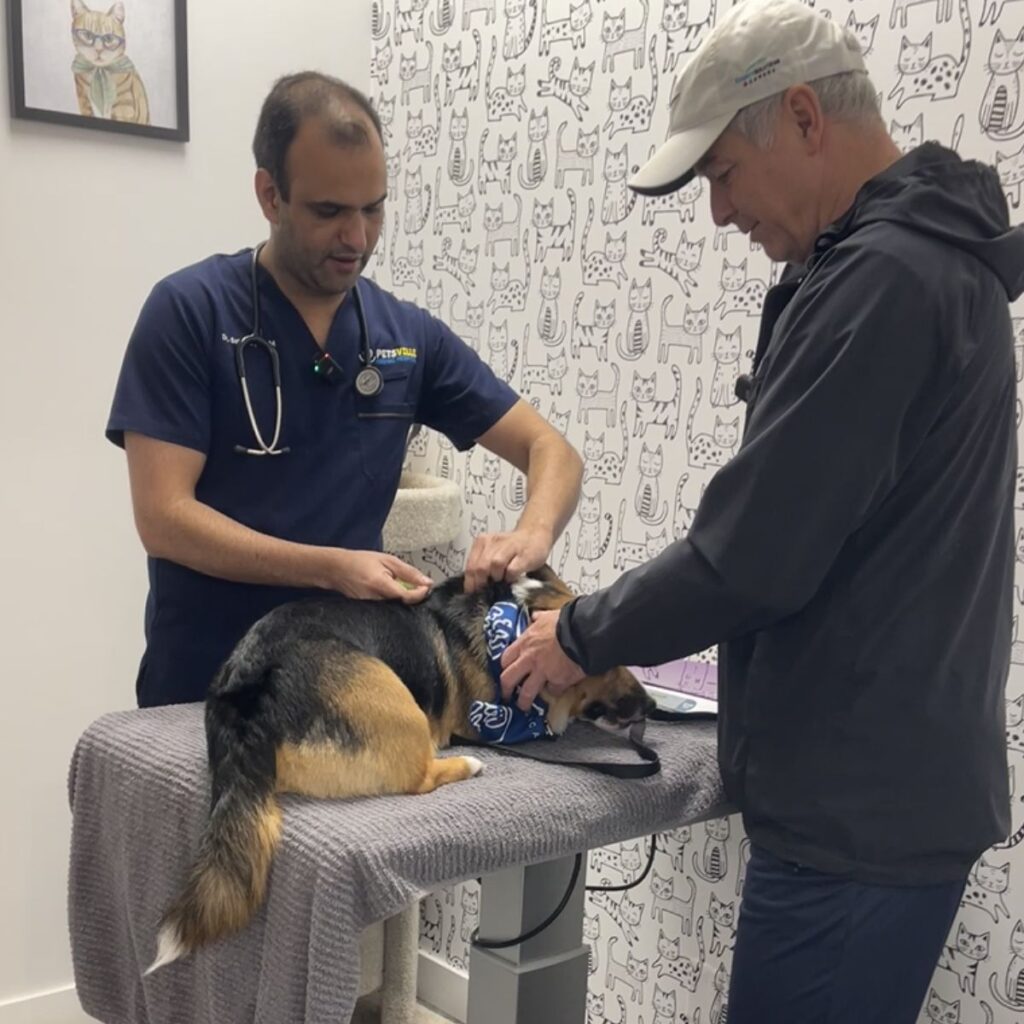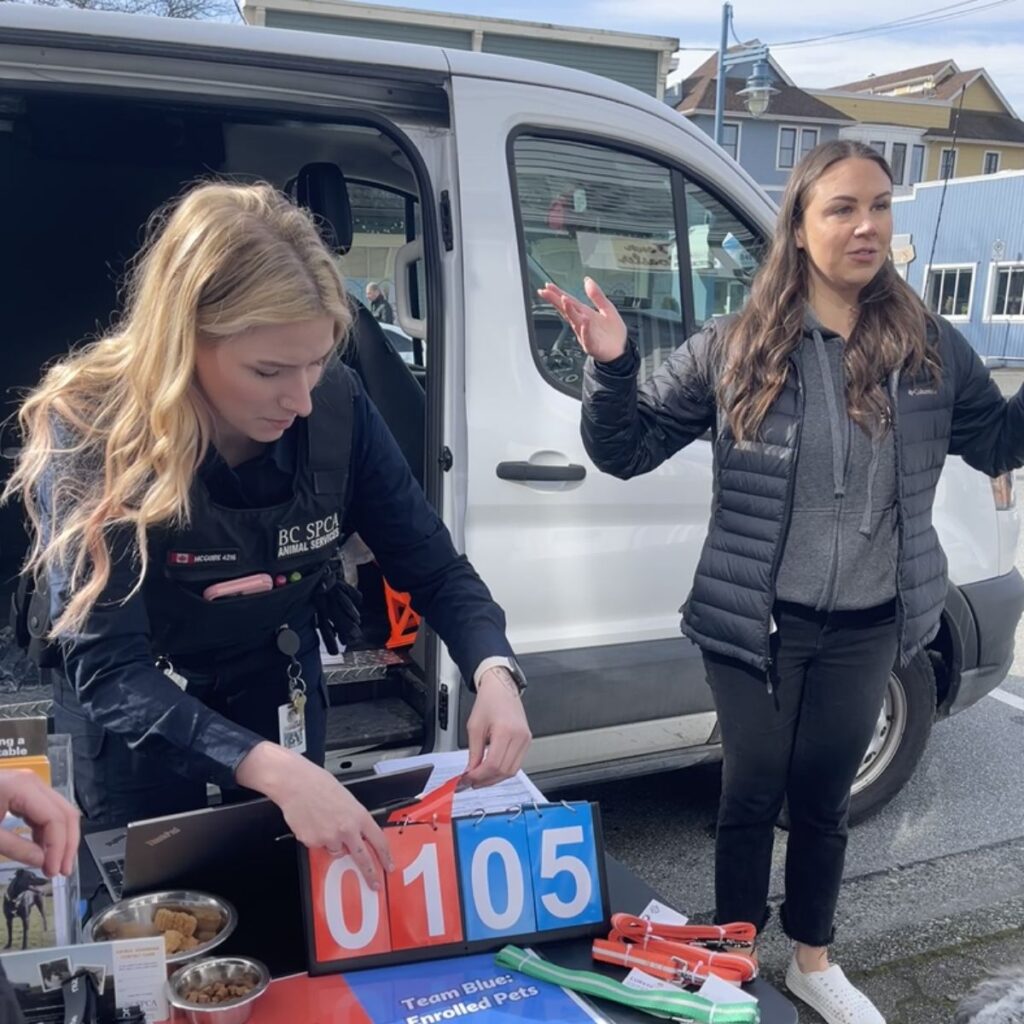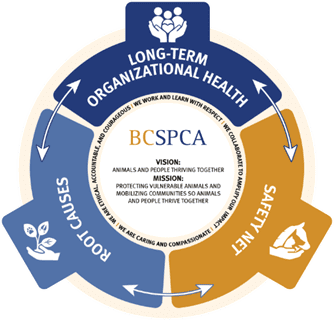On March 22, BC Pet Registry, BC SPCA Richmond, and Petsville Animal Hospital teamed up for a free microchip and scanning clinic to help reduce the number of unidentified stray pets in the Richmond community. The event addressed one of the root causes of animal suffering – being lost and placed into a stressful environment—aligning with the BC SPCA’s 2025–2030 Strategic Plan. Learn how this community-focused initiative supports lost pet reunification and helps BC SPCA staff focus on animals most in need.
Microchip and Registration: Community Clinic Recap from Richmond
A Community-Driven Effort to Protect Pets
On March 22, the BC Pet Registry teamed up with Petsville Animal Hospital and BC SPCA Richmond to host a free microchip and registration event. This collaborative effort aimed to strengthen microchip coverage in the area and help pet guardians verify or update their pet’s registration records.

Stray Pet Numbers in Richmond Are Still High
Richmond continues to experience high numbers of stray pets. In 2024 alone, 217 cats and 204 dogs entered the local BC SPCA shelter—more than one lost pet a day. Unfortunately, many of these animals lacked any form of identification. As a result, staff struggled to contact guardians quickly, which delayed reunification and added pressure on shelter resources.
Tackling the Root of the Problem
This event addressed the core issue: the lack of permanent, traceable identification. To fix this, the clinic provided free microchips and hands-on support with registration. These steps increase the likelihood of reuniting lost pets with their families while reducing confusion and emotional distress for the animals. More importantly, they free up time and space for staff to focus on vulnerable animals needing urgent care.
Aligning with the BC SPCA’s 2025–2030 Strategic Plan
This initiative also supported the BC SPCA’s new 2025–2030 Strategic Plan, which focuses on building more humane communities and improving companion animal welfare. Expanding access to preventive services like microchipping plays a key role in achieving these long-term goals.
Clinic Highlights and Data

We’re grateful to Dr. Satveer and everyone at Petsville Animal Hospital for donating their clinic space and time. Thanks to their generosity:
- 19 pets received new microchips
- 25 pets were scanned for existing chips
- 1 in 5 microchips scanned were not linked to any registry
These numbers highlight a common but critical problem: microchipping alone isn’t enough. A chip that isn’t registered—or has outdated info—won’t help bring a lost pet home. That’s why public education around microchip registration is essential.

This highlights why registration is just as important as implanting the microchip. A chip without contact info can’t reunite pets with their guardians.
Scanning Station Powered by Local Staff

Our heartfelt thanks go to Shannon (Assistant Manager), Teagan (Animal Control Officer), and Brianna (Receptionist/Admin) from BC SPCA Richmond for managing the microchip scanning station. Their help ensured every pet’s chip was checked against registries to identify outdated or missing information.
These scanning efforts aren’t just about tech—they’re about ensuring a lost pet doesn’t stay lost.
Why Microchip and Registration Matters
During recent events across BC, our teams have scanned hundreds of pets. Unfortunately, about 1 in 5 microchips are not registered. We urge all pet guardians to be part of the 80% who register their pet’s chip and keep it updated.
Don’t wait until it’s too late. Here’s how microchipping works and how you can make sure your pet is protected.
All you need is your pet’s microchip number or tattoo code. You can register online with us for a one-time fee of $45, which covers a lifetime of protection. Your registration also supports BC SPCA’s life-saving work.
What’s Next? Join the Movement
This microchip clinic was made free of charge to the public. As the only non-profit registry in Canada that’s determined to achieve social change, the BC Pet Registry is always looking for opportunity to give back to our own communities.
Want one in your neighbourhood?
- Follow your local BC SPCA Facebook page
- Ask your vet to contact BC Pet Registry
- Express interest with your local BC SPCA Animal Centre
Let’s continue to make BC a safer place for pets, one chip—and one registration—at a time.

FAQs
1. My pet already wears a collar tag with the license information, why do I need a microchip for him?
Collar tags are helpful for quick visual identification, but they can’t be relied on alone—many lost animals are found without their collars, which can fall off or be removed. Microchips remain the most reliable form of permanent identification. While tattoo codes can also be effective, they may fade over time and become difficult to read.
2. What is the difference between a microchip and microchip registration?
A microchip is a permanent ID implanted under your pet’s skin. Registration links the chip to your contact details in BC’s only provincial database.
3. How do I know if my pet’s microchip is registered?
Email us at bcpetregistry.ca and our team will help you check the registration status of the microchip.
4. Is there a fee to register my pet’s microchip?
Yes, a one-time fee of $45 covers lifetime registration with the BC Pet Registry.
5. Can I attend a future microchip clinic?
Yes! Follow your local BC SPCA Facebook page to stay updated or express interest at your nearest BC SPCA centre.
6. What should I do if my pet is already microchipped but not registered?
Register it right away with BC Pet Registry. Even if the chip is already in place, it won’t help unless it’s linked to your contact info.


